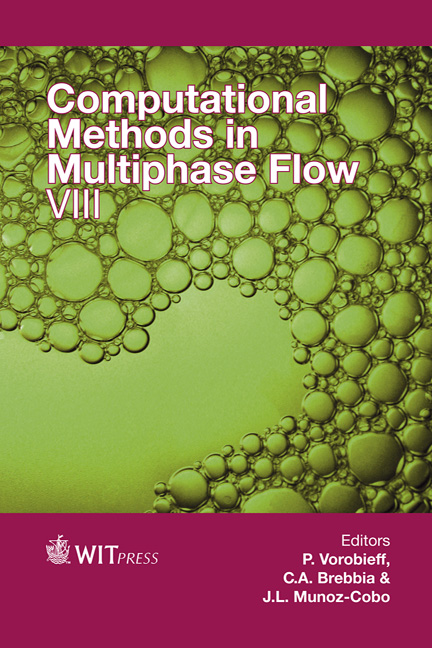Scaling In Multiphase Systems Application To Accidental Scenarios In PWR
Price
Free (open access)
Transaction
Volume
89
Pages
12
Page Range
195 - 206
Published
2015
Size
949 kb
Paper DOI
10.2495/MPF150171
Copyright
WIT Press
Author(s)
M. D. Domingo, A. Escrivá, J. L. Muñoz-Cobo
Abstract
This paper describes the work done in collaboration with the Spanish Nuclear Regulatory Commission (CSN), and it is related with scaling analysis in multiphase systems like pressure water reactors (PWR) during accidental conditions. A method was developed in order to identify possible deviations from thermal-hydraulic similarity, or scale distortion, between two multiphase systems; and it consists of the following steps. First governing conservation equations are derived. Then, the equations are nondimensionalized with reference parameters. And an order of magnitude analysis is performed based on the numerical values of the nondimensionalized coefficients with only the large order terms being retained, which are the terms that impact on system response. So that, equations are used to identify the leading processes and quantify the scale distortions in both systems. The scaling criteria are expressed through π-Groups. This technique has been used to assess the capability of a test facility to simulate the global system response of a typical PWR during a small break loss-of-coolant accident (SBLOCA). After developing governing conservation equations, it obtained a simple multi-phase pressure rate equation useful for the analysis of the depressurization of a system containing subcooled liquid and saturated fluid, like the vessel or the hot-legs in a power plant. Then the equation is nondimensionalized. And it is found that the same nondimensional groups are important for both systems. Indicating that, although there are some distortions in scaling, the behaviour of both systems is very similar.
Keywords
SBLOCA, scaling method, nondimensional groups, distortions in scaling, governing conservation equations





